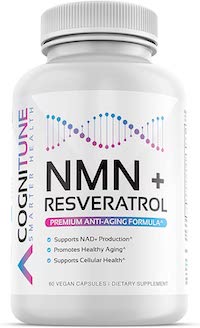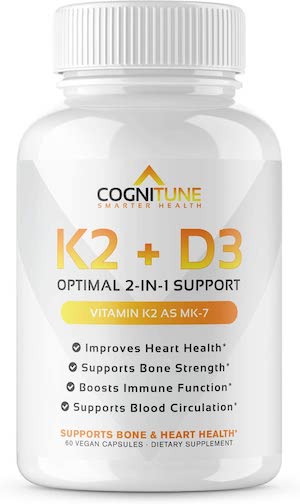Article
Taking Out The Trash
It's quite a remarkable device. Just turn it on, and it performs magic. Automatically it looks for invaders in your space. Searching every nook and cranny, sucking up the unwanted and the cast aside.
Like secret service agents, they're trained to smell trouble and take care of it quickly. Disposing of whatever gets in its way.
And then –

It's done, the job is complete, and this fantastic robot returns to its station and takes a break. Recharging its batteries and getting ready for the next battle. The device, of course, is a robotic vacuum. You have seen these advertised, and you may have one of your own.
Simply program when you want it to run. And it will zip around your house, cleaning the surface of your floors. At the same time, you attend to other, more pressing issues, like dinner or just sitting down and relaxing for a few minutes.
Automation is a wonder of modern technology, and it continues to grow. Your body enjoys a process that is similarly effective without requiring much effort.
Just as this vacuum automatically cleans foreign filth invaders off your floor, automated processes within our bodies fight invaders. And cleans up those things which would do us harm. Just like the vacuum, it requires just a bit of maintenance to keep running correctly. Charging the batteries if you like.
Free radicals… the rogue agents of the body.
Unstable atoms that can cause harm to the body are called free radicals. To understand what a free radical is and what it can do to your body, it's best to brush up on some introductory chemistry.
Think about an atom as the center of a solar system. Around this atom are planets in orbit called electrons. Electrons orbit the atom in a shell, which is supposed to contain a set number of electrons for the atom to be stable.
If electrons are missing from one of the outer shells, this atom can bond with another atom. To complete their outer shell these atoms, react quickly with other atoms, stealing their electrons and causing havoc. This kind of atom is called a free radical.
Once oxygen molecules split into single atoms lacking paired electrons, they become unstable free radicals. They then begin seeking out other atoms or molecules to bond with. As this continues, a process begins which is called oxidative stress.
As oxidative stress continues, it can damage the body's cells, lead to various diseases, and increase the symptoms of aging, such as wrinkles.
The damage that can be done.
The free radical theory was first developed in 1956, so it has a long history with much research devoted to it.
As we age, our body's natural defenses to free radicals begin to weaken. Thus, we get more free radicals accumulating in the body, leading to more oxidative stress. This leads to more damaged cells, degenerative processes, and "aging."
Studies have connected oxidative stress from free radicals to the following conditions:
-
Central nervous system diseases such as Alzheimer's and dementia
-
Cardiovascular diseases such as clogged arteries
-
Autoimmune diseases such as rheumatoid arthritis and cancer
-
Age-related vision declines and cataracts
-
Diabetes
-
Genetic diseases such as Huntington's disease and Parkinson's
-
Age-related changes in appearance include wrinkles, graying hair, hair loss, and skin elasticity.
Numerous studies have shown a correlation between age and the number of free radicals within our bodies. This can help explain why even though someone is completely healthy, they still show signs of aging. Our bodies just have trouble keeping up with all these rogue agents.
Exposure to certain elements has also been shown to increase the number of free radicals in the body. These include but are certainly not limited to:
-
Exposure to toxic chemicals (pesticides, air pollution, etc.)
-
Smoking
-
Alcohol
-
Fried foods
There have been considerable breakthroughs within research about free radical damage. And it points to ways that help clear excessive free radicals as we age. It's a process that is on autopilot, much like the robot vacuum. You just need to make sure and maintain it.
Antioxidants clean out the garbage.
Found in berries, citrus fruits, soy products, and carrots, antioxidants can help prevent the nasty effects of free radicals. Antioxidants prevent the oxidation of other molecules by donating an electron to free radicals, thus making them stable atoms again.
They can lose these electrons and do not turn into free radicals. This makes antioxidants extraordinarily unique and valuable in eliminating free radicals in your body.
There are many types of antioxidants, and they all behave differently within the body. Some of the more common ones that you have undoubtedly heard of are:
-
Vitamin C
-
Vitamin E
-
Beta-carotene (found in carrots and other vegetables)
-
Plant estrogen (found in soy)
With the correct number of antioxidants counteracting the effects of free radicals, it may be possible to slow down the effects of time on our bodies.
One of the most promising targets under study is a vital molecule called nicotinamide adenine dinucleotide or NAD+ (it's much easier to say it this way). NAD+ mediates the production of the energy within our cells, which in turn fuel enzymes needed to repair DNA damage. The kind of damage caused by free radicals.
As we age, the amount of this vital molecule within us begins to decline. So, it's understandable that if we can boost this molecule, then it will help in the fight against free radicals as we decrease.
The chemical precursor to NAD+ (making it vital for NAD+ function) is a long-named biochemical called nicotinamide mononucleotide or NMN. Your body must have proper levels of NMN to produce an adequate amount of NAD+. Think of it as trying to make a cake without flour. It's a key ingredient.
Studies are ongoing; however, highly positive outcomes have been shown from boosting and maintaining proper levels of NMN in the body
Improved brain function – NMN has been shown to reduce the signs and symptoms of Alzheimer's disease in laboratory testing of mice. It improved cognitive function and reduced brain plaques and neurodegeneration. It has also been shown to improve blood flow to the brain, reducing the damage and the chance of a stroke.
Restore blood vessel health – NMN has significantly increased blood vessel elasticity. This can help alleviate problems such as hypertension. And it reduces the inflammation within the vessels.
Improved muscle function – as we age, oxidative stress and other factors affect our muscle's ability to regenerate and repair themselves. This leads to muscle weakness, fatigue, and less physical endurance. NMN has improved muscle endurance, strength, and oxygen utilization.
Promotes heart health – heart disease is the number one cause of death worldwide. So, doing everything you can to protect your heart is extremely important. NMN has been shown to rejuvenate damaged heart cells, reduce heart tissue scarring, and improve overall heart metabolism.
These are just four of the many benefits that taking an NMN supplement has been shown to provide.
Another powerful antioxidant that has been extensively studied is Resveratrol. This is a natural polyphenol found in more than 70 plant species. This compound also acts as a phytoalexin, which counters pathogens such as bacteria and fungi.
It is such a powerful antioxidant that it has been found to have anti-tumor properties. And it's considered a candidate for treating and preventing several types of cancer. These findings have been confirmed by multiple studies.
Every time Resveratrol is studied, they seem to find even more benefits of this unique compound, these include but are not limited to:
-
Reduced aging
-
Anti-inflammatory properties
-
Lower blood sugar
-
Reduced arthritis pain
-
Protection of your cardiovascular system
-
Acts as a cancer-preventive agent
As you can see, it's hard to overstate the powerful potential of maintaining proper levels of antioxidants in your body.
It's often hard to know where to turn to get the correct number of antioxidants for your body. As with anything health-related, start with your diet. The more green leafy vegetables and colorful fruits and vegetables, the better. Drink plenty of water and have a balanced exercise routine.
All pretty standard advice and much easier said than done. As our lives get busier, it's hard to incorporate these things into our everyday habits. So, to help bolster your body and its all-important antioxidant levels, a good supplement can really fill the void.
The great people at Cognitune have just what you need to get your antioxidant levels up to where they should be.
NMN + Resveratrol Supplement
A powerful 5-in-1 anti-aging formula that boosts NAD+ levels and promotes DNA and cellular health.
This product also includes the powerful antioxidant properties of Vitamin C, grape seed, and pine bark.
NMN and Resveratrol work together to fight the signs of aging, and you can see an improvement in energy, muscle strength, endurance, immunity, and heart health.
Promote healthy NAD+ levels with these easy-to-swallow capsules with an ingredient clinically shown to increase nutrient availability and absorption. This allows you the most benefit from each serving.
Taking charge of your antioxidant levels could be a game-changer in your fight against free radicals.
Do everything you can to combat these rogue agents and heal your body. This NMN and Resveratrol supplement is a premium choice and a great starting place.
Of course, there are other vitamins and nutrients that are critical to our health that we often do not get enough of. Cognitune has you covered there as well, with a wide range of high-quality supplements, including:
Vitamin K2 + D3 Supplement
Created to help support heart, bone, and immune system health.
Vitamin D3 deficiency is a real problem. In fact, one of the latest studies has found that over 41% of the U.S. population is deficient in this crucial vitamin. Instead of baking in the sun all day to get your levels up, consider this as an alternative.
D3 is critical in the metabolism of calcium for use in your bones. A vitamin D3 deficiency in adults often leads to osteoporosis.
The K2 found in this supplement is crucial for proper heart function and improved blood flow. And it works synergistically with vitamin D3, ensuring the blood's calcium is utilized efficiently.
Like all Cognitune products, this supplement is non-GMO, gluten-free, soy-free, vegan-friendly, and allergen-free.
Their products are created in an FDA-approved facility and follow strict Good Manufacturing Practice standards. Also, all products are third-party lab-tested for purity and potency.
Cognitune is so sure that you will be pleased with the standard they have set for their products that they offer a 60-day, no hassle, money-back guarantee.
So, take control of your health.
Do the things now that will help in the future. Take care of your body and help it fight the rogue agents and outside influences that bombard you daily.
* In partnership with our friends at CogniTune * Photo courtesy of CogniTune
* These statements have not been evaluated by the Food and Drug Administration. These products are not intended to diagnose, treat, cure or prevent any disease.
* The information available on ewellnessmag.com, including text, graphics, and other materials is for informational purposes only. Reliance on any information on ewellnessmag.com is at the user's own risk. Sponsored product placement may appear in the article. The visitor of this website acknowledges that the information available on or through ewellnessmag.com is not and is not intended to be a substitute for professional medical advice. Copyright © 2022 Brawo Press, Inc. All rights reserved.
Share article











You must be logged in to add a comment ... → Log in | Register